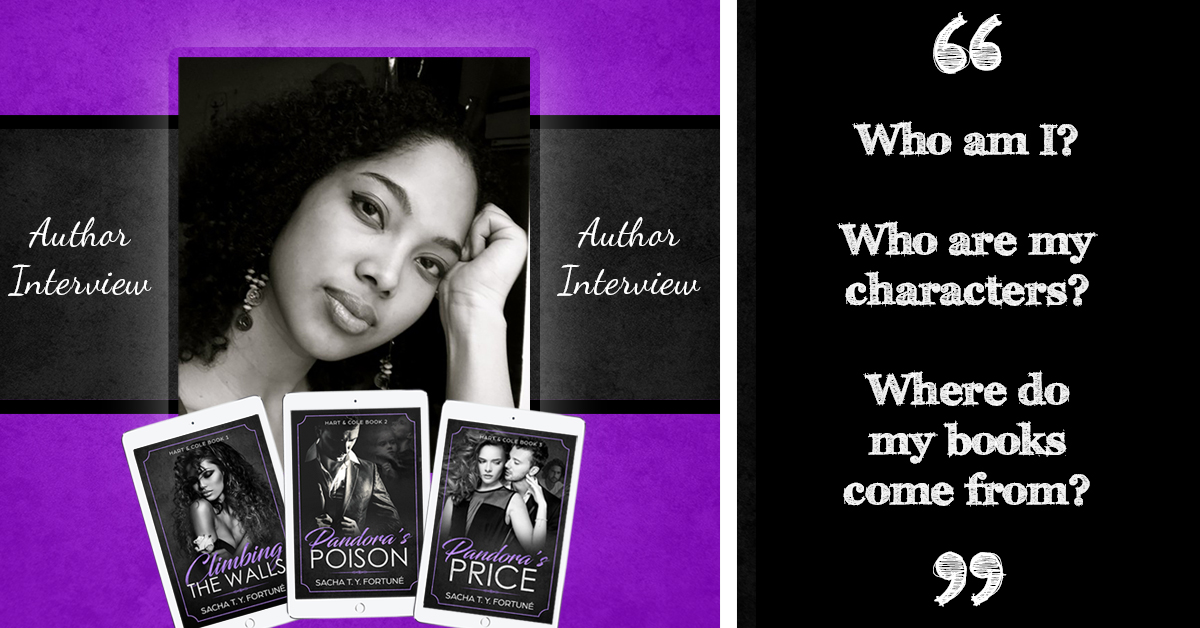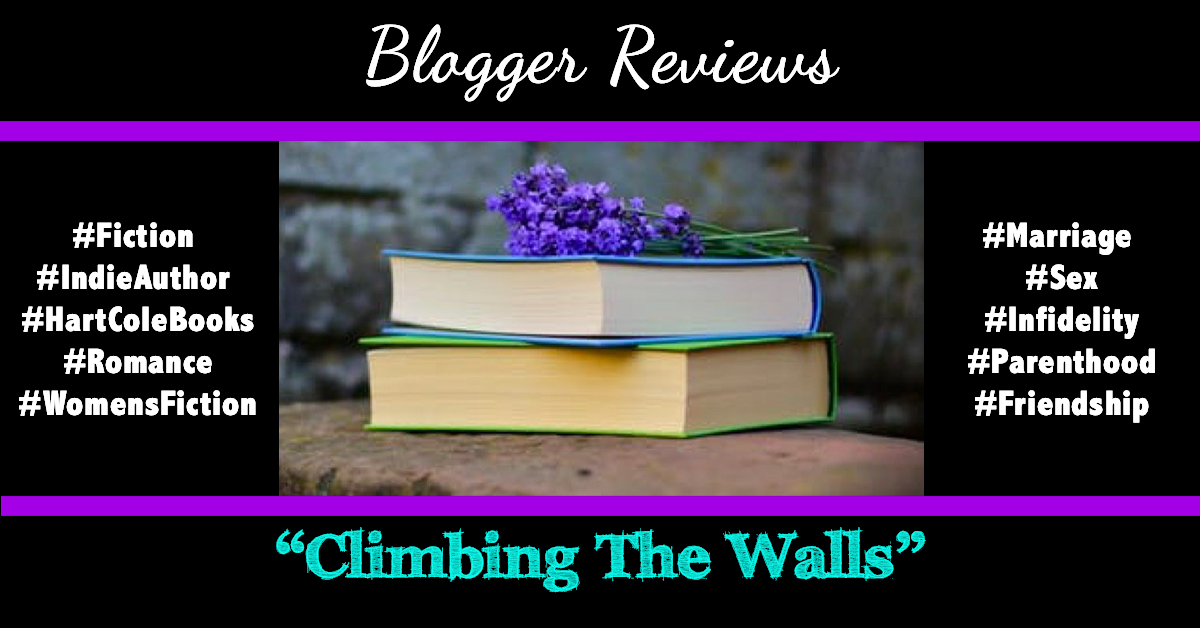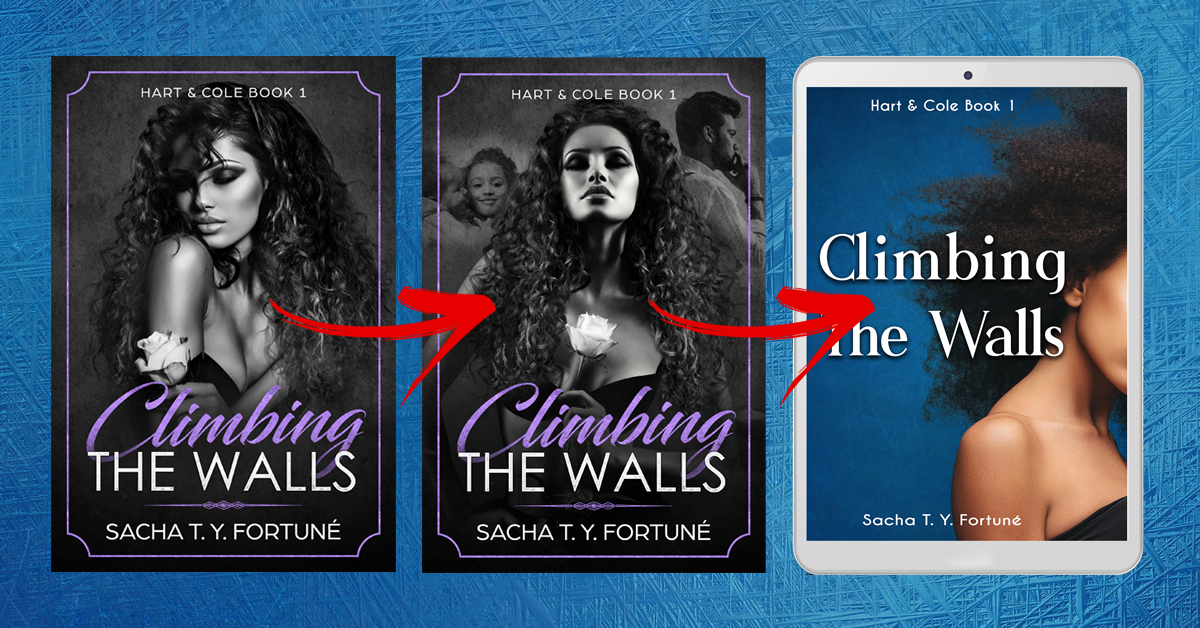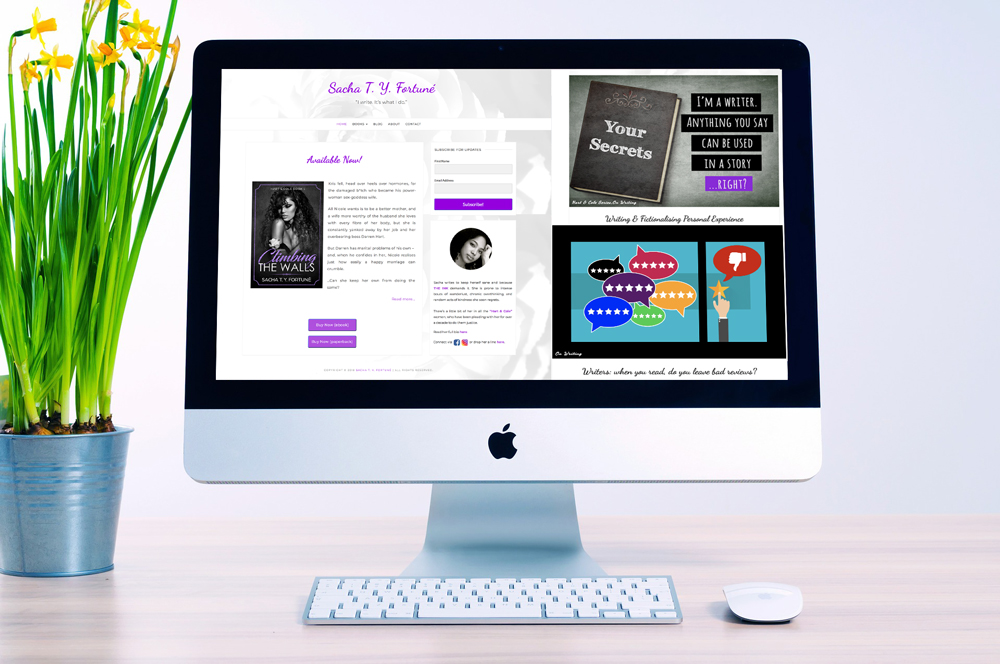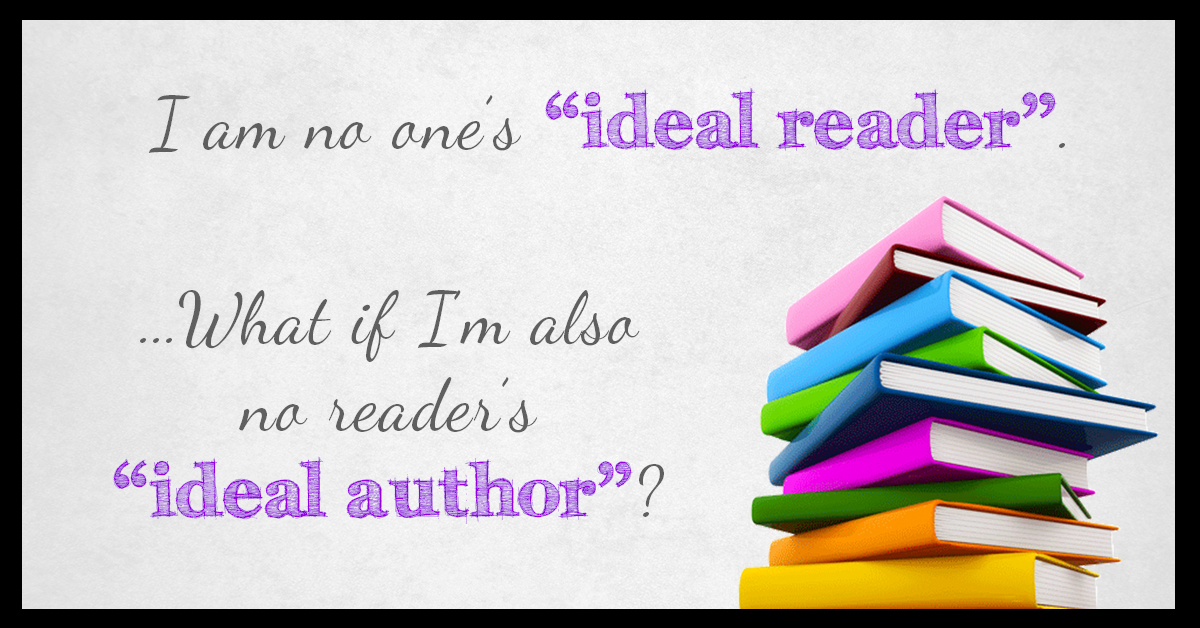When I saw the question, quite innocently posed on a Facebook Author group, my biggest surprise was that the responses were NOT a resounding “YES”!
To me, it was. I mean, of COURSE you need a website.
Granted, I make a living building and managing websites, so I may be a *wee* bit biased, but this one should be a no-brainer!
For any business — and, make no joke about it, being an author (particularly a self-published one) is a BUSINESS! — you need to have a website.
Don’t be at the mercy of other platforms
The poster’s logic was that — “Well, I have a Bookbub profile, a Goodreads profile, a Facebook page, an Instagram account… just so many things to manage! And I’m so not techy…”
Yeah, honey, I hear you… but you need to buckle up and get techy, and fast — or pay someone to do it for you.
Another argument from other posters was: “Well, I’VE never sought out an author website, not even for my favourite authors. Who goes to these things anymore, when there’s social media?”
But, even if you yourself don’t visit author websites, how do you know readers don’t? What about reviewers, filmmakers, a magazine writer looking for new talent, or even other bloggers that may be interested in linking to your site?
Sure, you have an ideal “reader” in mind, but you’re only limiting yourself.
You can’t just only put yourself where you THINK people will be. You need to put yourself in a good position for them to find you, whichever way they want to.
Ask yourself this: if Facebook or Instagram were to go belly-up tomorrow, what would happen to the following you’ve built up there?
Or, even more common lately: what if they change their algorithm (a seemingly daily habit by Facebook) and your fans can’t see your posts anymore?
Yep. A very scary, and very real possibility.
When you leave your following at the mercy of a company that has no interest in your personal success, anything can happen.
A website is your soapbox, your foundation
A website should be your key point of reference as a professional of any kind.
As a writer, a website should be your home on the web where your online presence can shine. It is the first assurance to your reader or possible reviewer that your work is of a high quality.
Think of your website like the foundation to a house.
It’s your homebase — a digital property you own and control, where your loyal fans gather. It’s where you direct all your traffic, where you can best sell your products the way you want to.
It’s where all roads should lead back to, regardless of the digital footprints you’ve stamped around all over the internet.
When you post a blog to your website, you can share that on your Facebook or Instagram page. When you add a chapter excerpt, you can send your fans there to collect it.
When you publish your book, a new reader that stumbled upon your website should be able to hop across to your purchase page on Amazon.
When you want to share your frustration, or give out advice to other aspiring writers, you can write something on your website and then drop a link to it on LinkedIn or your other social media sites.
A website is the one place you won’t have to categorise your book and choose where it should go.
It’s your soapbox. It’s where you stand and tell the world who you are, what you write, and why they should buy your book.
It’s the one place you get to tell your FULL story, with no limitations, the way you want it to be told.
Writers just want to write…
Okay, so now that we’ve established you DO need to have a website, it’s important to note that, as pointed out by this fellow blogger:
An author website has a lofty goal: it needs to not just be, but also needs to perform and respond.
It can feel like a HUGE time-suck to build all the content across a myriad of platforms, but if there’s one thing you shouldn’t sacrifice, it’s your author website.
Of course, writers just want to write.
But in today’s world, you can’t just write and put work out and hope someone buys it. You need to hone your craft — and a key part of honing your craft is ORGANISING the honing of your craft.
That’s what an author website does.
Since authors spend most of their time fine-tuning their masterpieces, they may not always put a lot of thought into their websites, which is a shame.
A website needs to fulfill your needs as a writer… you can’t just throw anything up there and hope it sticks!
Maximise your website potential
Outline what your goals are for your site. A few key goals for authors should be:
- Newsletter sign-ups — I can’t stress this enough. If you launched a book to people who’ve already shown interest in your writing, your chance of them buying it will be much higher.
- Reader magnet — this can be tied into your newsletter. Basically, when the visitor signs up, they automatically receive a free book, short story, or chapter excerpt. By giving them a reason to sign up, you’ve hooked them with a freebie and also shown them a taste of your writing so they know what to expect.
- Author Blog — you don’t need to write an opus every day, but a few hundred words on a weekly or biweekly basis just to let people know what you’re up to and keep you top of mind. If you can’t think of anything to write yourself, here’s a handy list of ideas.
- Work In Progress plugs — set up a page and start talking about your Work in Progress — even if it’s light years away from completion. Start talking about it from now! (I’ve been telling y’all about my Book 2, Book 3 and Book 4, even before I published Book 1!)
- Character Platforms — these are especially useful if you have a series. Let readers know who your characters are. (You can check out all my Hart & Cole characters here.)
- Author Interviews — useful no matter what you’ve written. Answer some FAQs and let readers know your thoughts on the book you’ve written. Why did you write it? What’s it about? (You can check out my Hart & Cole interview here.)
- Chapter Excerpts — awesome for new and established authors, to show readers what’s coming up (Book 1’s first 2 chapters available here).
- Contact info — make yourself available to your readers. Add links or buttons to any social media sites or sites where you have an author profile. Let them know you want reviews, input, discussion, comments, anything. Just ask! (Here’s mine – feel free to connect!)
- Your personality — who are you? You need to show yourself a bit, whether through your “About Me” or the voice of your blog. Readers want to connect with you, and establish trust before they click on “Buy”.
Tell Your Story — before you Sell Your Story.
Finally… the best part of your website is that you get to track its success.
Pop some analytics code on it, and see what pages your visitors are flocking to. Are they interested in chapter excerpts, newsletter sign-ups, video trailers?
They’re your readers. They’re your future fans.
A website lets you find out what they want — and give it to them. So, get cracking!
…And if you do need some techy help to crank out your website, just drop me a line here.
